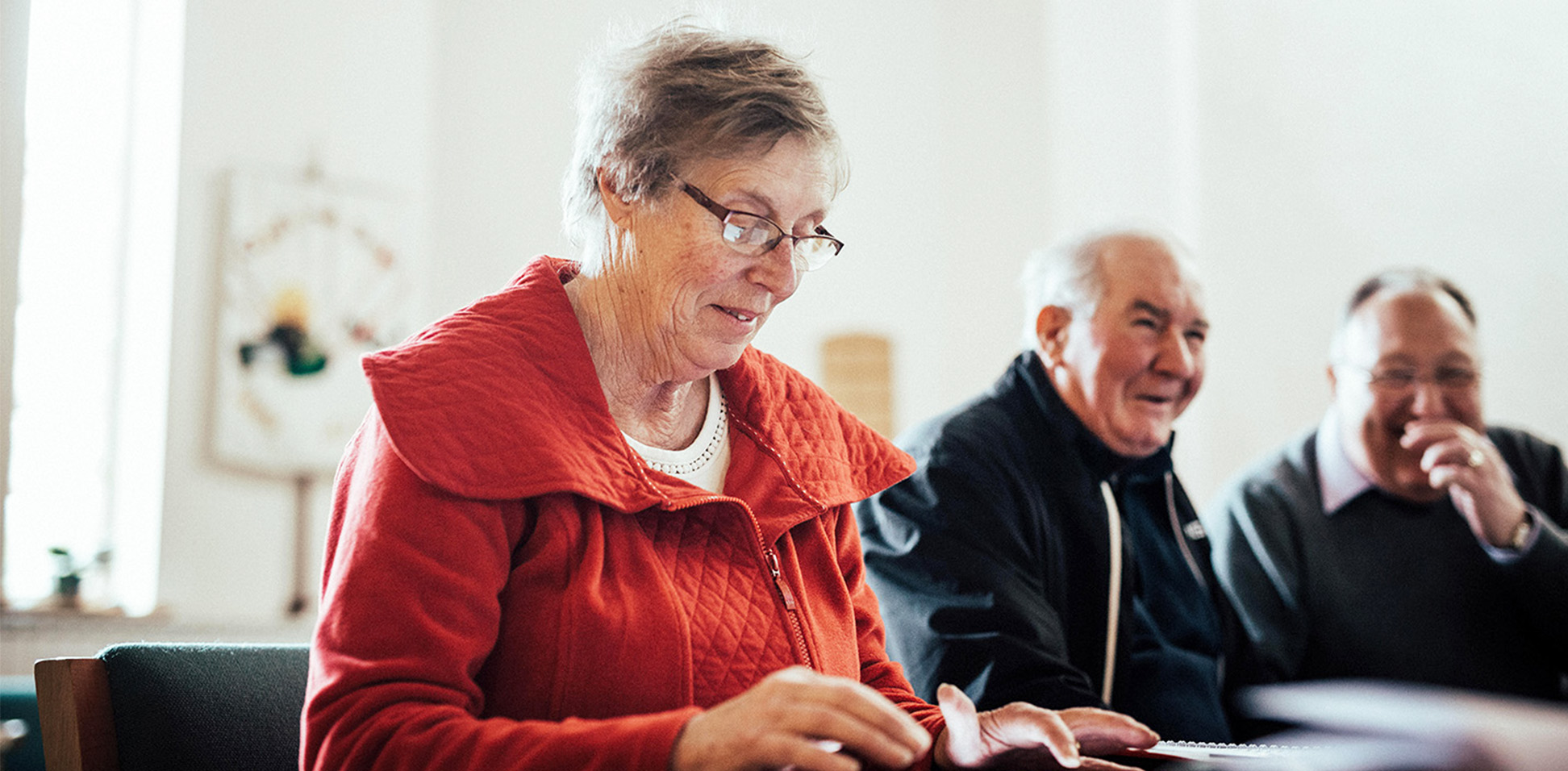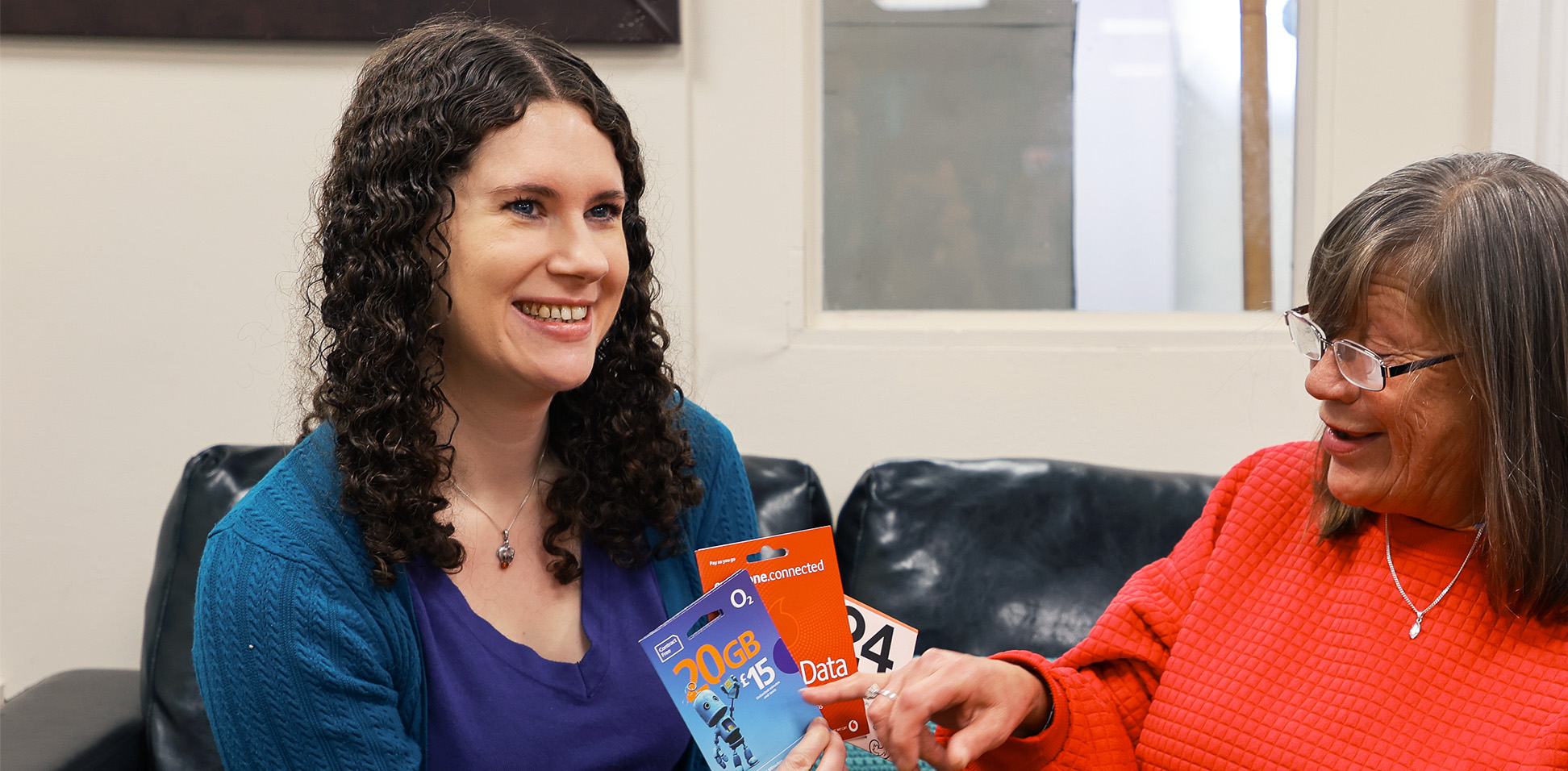Rethinking device access in libraries: insights from our meet-up
At our September Libraries Digital Inclusion Meet-Up, library teams from across the country shared innovative approaches to supporting digital access through devices. Read the key highlights and libraries' plans for the future.
Key takeaways from the Libraries Digital Inclusion Meet-Up
Some library services said they were supporting people to access essential online services using only public PCs combined with digital skills support. Others had established device loan offers and some had started to gift devices to people for a longer term solution.
Here’s a look at how libraries are evolving their device offerings to bridge the digital divide and the challenges and enablers that come with it.
Understanding what each person and community needs
To develop effective digital services, libraries are first identifying the specific needs within their communities. Here’s what different groups are asking for:
- Customers need to be able to access essential services using library PCs.
- People with their own device need desk space, wifi and support to use their device for a range of things, from study and work to hobbies and life admin.
- Asylum seekers need device loans so that they can complete e-visa applications in their own time.
- Jobseekers need laptops that they can use at home to create a CV and apply for jobs.
- People who use a smartphone need support and time to practise using a laptop.
- People with low digital skills need time and support to feel confident and safe using a device before investing in one themselves.
What libraries currently offer
Libraries are employing a variety of strategies to meet these needs, from traditional public PCs to innovative loan and gifting programs.
1. People's Network PCs
PCs remain a core resource in most libraries, though some branches report challenges like outdated equipment which are in urgent need of a refresh, or limited access to essential websites like the NHS - despite these devices being used by many to access services like council online services, price comparison websites, universal credit and other benefits. However, some customers bring in their own devices and often need support to use them to do what they need to do online.
2. Device Loans
Some libraries offer in-branch device loans, while others provide longer-term loans between 3 weeks to 6 months. Devices range from iPads and android tablets to chromebooks and other laptops, often equipped with mobile data. For example, Middleton Library said Chromebooks were particularly in demand with jobseekers, and they work closely with the local Work and Skills team. However, loaning a device is a complex process. It can involve:
- Being a member of the library
- A loan agreement
- Training and support to use the device
- Device management software
- Device maintenance and wiping between loans
Warwickshire Libraries said they were thinking of moving away from loaning because the process can be time consuming and expensive, and Surrey libraries echoed this saying it was better for staff (as it was less resource intensive) and people who receive them (because it was a longer term solution).
3. Gifting Devices
A number of libraries were gifting both laptops and tablets to people in their communities. Lambeth Library, for instance, sources devices from the National Device Bank, and Surrey Libraries are exploring similar options.
Future plans: evolving device offers
Many libraries are adapting their device access strategies to better serve their communities:
- Upgrading public PCs: Several libraries are hoping to update their public PCs
- Making space: Some are reducing PC numbers to create more space for people with their own devices to come and get support.
- Device loans: Lambeth Libraries plan to loan devices specifically for asylum seekers completing e-visa applications, providing essential support for a growing community need.
- Shifting to gifting: A number of libraries said they were hoping to move from loaning devices to gifting to reduce pressure on their teams and overcome challenge related to device management, wear and tear of loan devices, etc.
Challenges and enablers
Libraries face several hurdles in their mission to improve digital access:
- Risk averse IT departments blocking libraries from trying new things.
- Loan processes are time consuming and expensive.
- Funding is very stop start.
- Hard to engage someone who comes into the library for support to do one thing online.
Several libraries are building partnerships to enhance their digital services and reach more people:
- Partnerships with other areas of the council to reach people who most need support.
- Working with the voluntary sector, e.g. in Warwickshire Libraries where they charity provides the data sims, and the library the device and skills support.
- Partnerships with the NHS who often have pots of funding to help people to access digital health.
Ensuring digital access for all
The recent meet-up made it clear that libraries are committed to evolving their device offers and expanding digital inclusion in their communities. By understanding community needs, exploring new partnerships, and considering alternative solutions like device gifting, libraries are helping fix the digital divide one device at a time.


